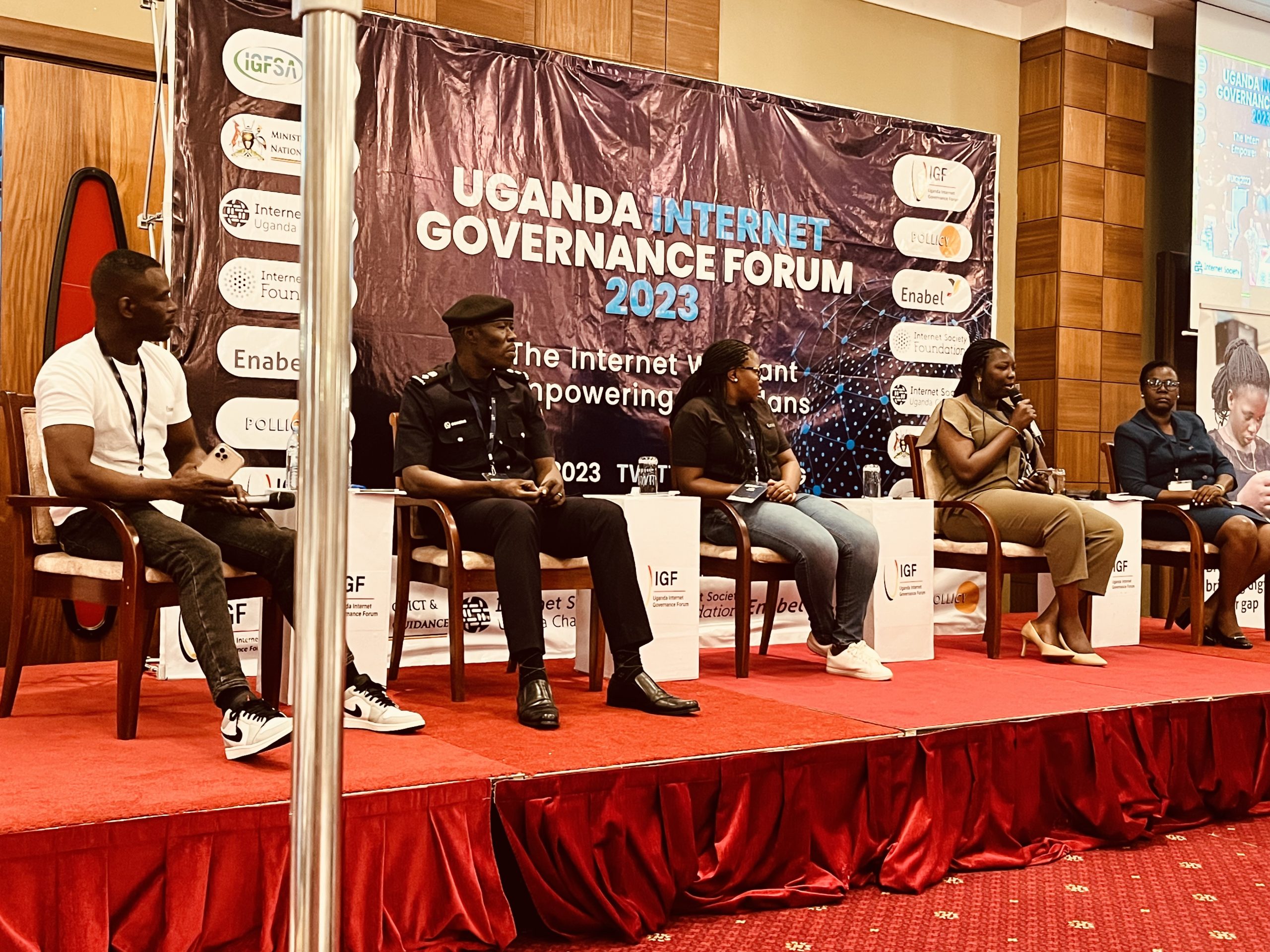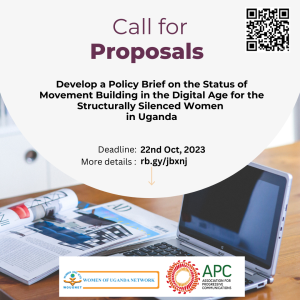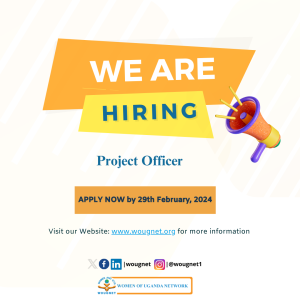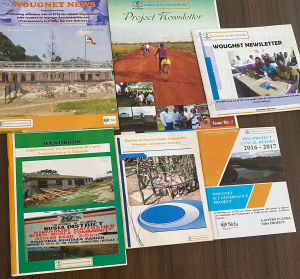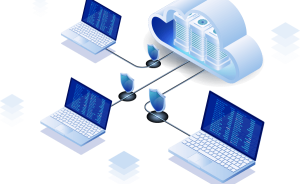Introduction
Innovation hubs have emerged as dynamic catalysts for digital transformation in Uganda, serving as collaborative spaces where individuals converge to breathe life into their innovative ideas. Their significance in advancing digital rights and transformation cannot be overstated. During a panel discussion at the Uganda Internet Governance Forum 2023, held on August 24th, 2023, experts (Francis Ogweng – Ag.ACP/CCTV-Operations, Uganda Police Force, Sandra Aceng – Executive Director WOUGNET, Olga Niaga – Business and Investment Analyst, Hive Collab, Janepher Taaka – Gender and Inclusion Expert, Enabel Uganda moderated by Moses Owiny, Digital Rights Expert, Enabel in Uganda) gathered to explore this topic and shed light on the challenges faced by women and girls in these hubs. This blog delves into the critical insights shared during the panel and proposes potential solutions to address the identified challenges.
Understanding Innovation Hubs
Olga Niaga, Business and Investment Analyst from Hive Collab, in her discussion, emphasized the essence of innovation hubs as spaces where women and girls can give life to their creative ideas. These hubs foster diversity by bringing together people from various backgrounds, skills, and perspectives, a crucial element in driving innovation and transformation.
Gender-Specific Constraints
While innovation hubs hold the potential to advance digital rights and transformation, gender-specific constraints significantly hinder the active involvement of women and girls in the digital landscape. These constraints span various issues:
Access to Digital Devices: Restricted access to essential digital devices, such as smartphones, laptops, and computers, poses a significant challenge for many women and girls due to financial constraints, limiting their online engagement.
Cost of Connectivity: The associated costs of internet connectivity, digital gadgets, and digital literacy programs can be particularly burdensome, especially for women and girls in rural areas.
Gender Stereotypes: Pervasive gender stereotypes and discriminatory attitudes act as deterrents, discouraging women and girls from pursuing careers in STEM fields or freely expressing themselves in the digital sphere.
Jennifer Taaka, – Gender and Inclusion Expert from Enabel, further explored the structural and societal barriers limiting the participation of women and girls. These include the implementation of policies related to gender equality, undefined norms that restrict women’s roles, and socio-economic disparities. Moreover, women and girls often face barriers such as teenage pregnancy and limited access to information, which hinder their participation outside the home.
Initiatives to Address Challenges
In response to these challenges, Enabel, an organization dedicated to advancing digital inclusion and gender equality in Uganda, has implemented various initiatives:
Digital Literacy Programs: Enabel provides comprehensive digital literacy programs and training initiatives tailored specifically for women and girls. These programs equip them with essential skills for navigating the digital landscape effectively.
Promoting Gender Equality: Enabel champions gender equality within the digital sector by challenging stereotypes and discriminatory practices that discourage women and girls from pursuing digital careers or expressing themselves freely online. They actively collaborate with organizations, government agencies, and stakeholders to create a supportive ecosystem fostering gender-inclusive digital participation.
Power Relations and Possible Solutions
Power relations play a pivotal role in digital rights and transformation. They impact who has access to digital resources, who can express their opinions freely online, and who benefits from the digital economy. To address these issues, Francis Ogweng, Ag.ACP/CCTV-Operations, Uganda Police Force, proposed several solutions:
Inclusive Approach: Advocating for a more inclusive approach that focuses on both girls and boys to leave no one behind. Challenging patriarchal norms and increasing awareness about existing policies and laws is essential.
Access to Digital Infrastructure: Expanding access to digital infrastructure, such as affordable internet, can bridge the accessibility gap. Ensuring that innovation hubs are safe and inclusive environments for everyone is crucial.
Feedback Mechanisms: Incorporating feedback mechanisms that allow participants to contribute ideas and solutions can address language barriers and promote inclusivity.
Digital Rights and Freedom for Women and Girls
The discussion extended to broader digital rights issues, emphasizing the importance of women’s rights and roles in the digital realm. It raised questions about regulating AI, balancing women’s rights and traditional roles, and the need to protect freedoms on the internet while ensuring access to information for marginalized communities. Privacy concerns and the impact of abuse on women and girls were also discussed, with a focus on emerging threats such as deep fake pornography.
Sandra Aceng, in her discussion about the initiatives of the Women of Uganda Network (WOUGNET), highlighted the organization’s dedicated efforts towards advancing the digital rights of women and girls. “WOUGNET employs a gender methodology, aiming for a composition of 70% women and 30% men in its programs and activities.” This strategic approach is designed to promote gender equality and address the specific digital challenges faced by women, while also acknowledging the importance of engaging men in these efforts with this use of gender methodology WOUGNET actively involves both women and men and recognizes the importance of diverse perspectives in addressing digital rights and gender-related issues.
Most importantly the deliberate effort to maintain a 70% women and 30% men balance reflects WOUGNET’s dedication to promoting gender equality which acknowledges the historical imbalances, stereotypes and discrimination that women face, particularly in the digital space.
Sandra further highlighted that WOUGNET’s initiatives aim to empower women and girls by ensuring that they have equal opportunities to access and utilize digital technologies. This includes promoting digital literacy, providing digital security and literacy trainings, and creating spaces for women to participate in the digital space actively.
Lastly, The focus on marginalized communities underscores WOUGNET’s commitment to leaving no one behind. WOUGNET recognizes that certain groups, such as rural women or those with limited access to resources and information may face unique challenges in the digital landscape. By ensuring a significant representation of women and addressing the unique challenges faced by marginalized communities, WOUGNET contributes to creating a more inclusive, equitable, and empowering digital environment for women and girls in Uganda.
Conclusion
Innovation hubs in Uganda hold immense potential for advancing digital rights and transformation. To fully harness this potential, it is imperative to address the gender-specific constraints that hinder the full participation of women and girls in the digital space. Enabel and WOUGNET are making commendable efforts in this regard. By extending infrastructure, creating safe spaces, and incorporating feedback mechanisms, we can ensure that innovation hubs become centers of excellence for everyone.
Written by Esther Nyapendi, Technical Support Officer, WOUGNET.

